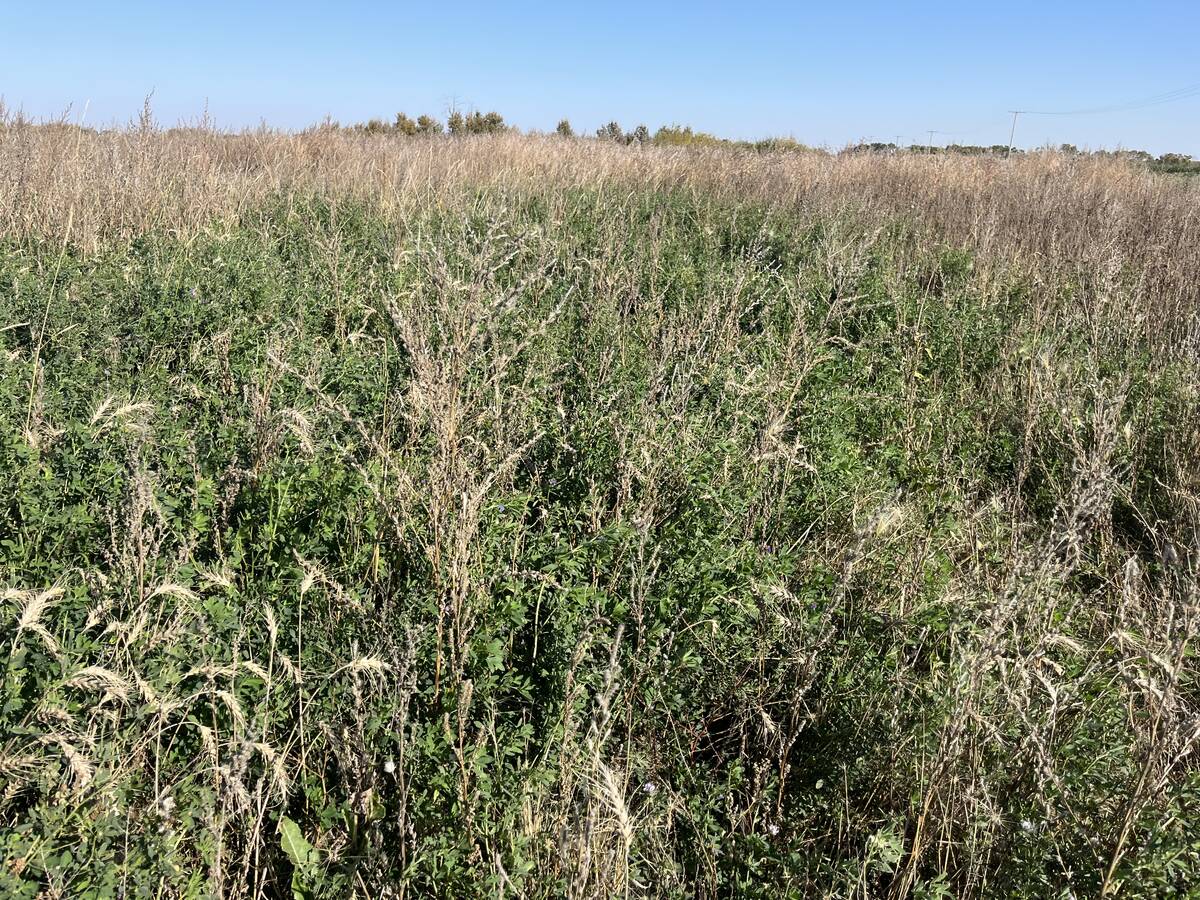PICTURE BUTTE, Alta. – A fledgling association with supporters in the United States and Canada wants to pressure politicians into stopping a tariff on exported cattle.
“It’s a long shot and we’re under no illusions that it’s going to be easy,” said Don Alberts, president of the Alberta Cattle Feeders Association.
About 200 cattle producers met recently in Picture Butte, north of Lethbridge, Alta., for a review of what to expect this fall if a 5.57 percent tariff on live export cattle becomes permanent.
Canadians moving truckloads of cattle south since mid July have already received bills they must pay before crossing the border. Some have stopped shipping cattle.
Read Also

Dormant seeding forages frees up farmer time and gets ahead of weeds
Dormant seeding isn’t common practice and can appear daunting, but there are some techniques to give Manitoba farmers an edge
Alberts said his phone is ringing off the hook. Worried producers on both sides of the border want to remove the tariff before it does further damage.
The calls prompted him and other producers in both countries to organize Northwest Beef Producers.
Instead of bickering and paying trade lawyers’ bills, these producers want to co-operate and rebuild flagging meat consumption, said Alberts, who owns a feedlot at Brooks.
The northwestern states and western provinces raise genetically similar cattle that are fed barley in a temperate climate, with world class processing facilities and markets nearby.
“Our competition is corn-fed beef out of the Midwest and competition from grassfed beef out of South America, as well as the chicken and pork people,” Alberts said.
For a $50 (Cdn) membership, anyone can join the group.
Members plan to spend about $75,000 on advertising in the U.S. to tell Canada’s side of the trade story. They will also cover some travel expenses for one-on-one meetings soon to start in Montana.
Canadian producers met with a group in Malta, Mont., at the end of July and they plan a three-week swing through the state starting Aug. 9.
Some cattle producers in Malta told Alberts they think tariffs paid by Canadians will be coming directly to them rather than to the U.S. treasury.
“The American producer that supported … this duty is not getting the money,” said Alberts.
By meeting ordinary producers like themselves, members of the new group hope to dispel rumors and quell animosity that began when American cattle producers were caught in a crisis caused by oversupply and plunging prices.
Many American producers still suspect Canadian cattle producers receive feed and trucking subsidies.
“Every producer in this room knows the amount of subsidy we get to put a pound of beef on. Nothing,” said Rick Paskal, who feeds cattle in the Picture Butte area.
The tariff was implemented by the U.S. Department of Commerce July 1 and increased to 5.57 percent from 4.73 on July 23. If implemented, the amount of the levy could change each year.
Investigations into unfair Canadian trading practices were initiated by a grassroots group called the Ranchers-Cattlemen Legal Fund.
R-Calf raised producer support and money to convince the U.S. Department of Commerce to launch a trade investigation, suggesting Canada was dumping cattle at prices below the cost of production.















